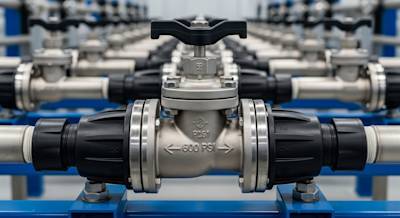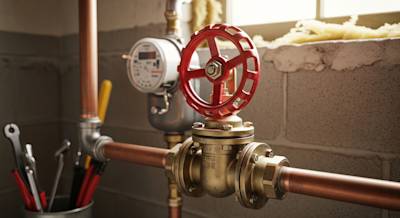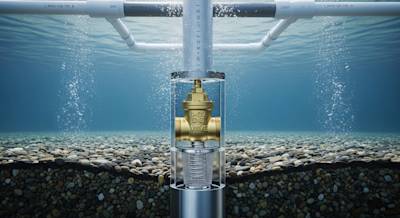Septic systems are a vital part of residential structures in rural and suburban regions. They manage household wastewater, protect groundwater quality, and prevent sewage from backing up into homes. As such a crucial component in maintaining the sanitation and health of a house, its service and maintenance should be a priority for homeowners. Delving deeper into this topic, we will look into what septic system service involves and why it's so critical to maintain.
Understanding Septic Systems
Before discussing septic system service, it’s vital to explain what a septic system is and how it functions. A septic system is a self-contained wastewater treatment structure commonly used in places not connected to a main sewage pipeline operated by the government or private corporation. It's primarily divided into two segments - the septic tank and the drain field.
The septic tank is a waterproof box usually made of concrete, fiberglass, or polyethylene. It holds the wastewater long enough to allow solids to settle down to the bottom, while oil and grease float to the top as scum. The compartment in between the two, which carry the relatively clear water, is then transported to the drain field for further treatment.
Key Benefits of Regular Septic System Service
Extended System Lifespan
-
Preventative Maintenance: Regular inspections and pumping help to prevent the buildup of solids, which can clog your system and lead to failures. This maintenance is crucial for avoiding the premature deterioration of the septic components.
-
Avoid Costly Replacements: Early detection of issues allows for timely repairs that are generally less expensive than major replacements. This can significantly extend the lifespan of your septic system, saving you money in the long run.
Improved System Efficiency
-
Optimal Performance: Ensuring that your septic system is serviced regularly helps maintain its efficiency in processing and treating household wastewater. An efficient system reduces the risk of system overloads and potential failures.
-
Reduced Blockages: Routine maintenance includes clearing any emerging blockages, which helps to prevent backups and overflows. Keeping the system clear of obstructions ensures smooth operation and prevents inconvenient disruptions.
Environmental Protection
-
Groundwater Safety: Properly maintaining your septic system helps prevent harmful contaminants from leaking into the surrounding soil and groundwater. This is vital for the health of local water resources and community well-being.
-
Ecosystem Health: Regular servicing prevents the escape of untreated sewage, which can be detrimental to local wildlife and ecosystems. A functional septic system reduces the risk of pollution, supporting a healthier environment.
Health and Safety
-
Disease Prevention: A well-maintained septic system effectively neutralizes harmful pathogens in wastewater that can cause health issues. Regular service ensures that these contaminants are managed safely and effectively.
-
Odor Reduction: Without regular maintenance, waste materials can build up, leading to unpleasant odors. Servicing your septic tank regularly helps to minimize odors, thereby maintaining a more pleasant and sanitary home environment.
Cost Savings
-
Lower Long-Term Costs: Investing in routine septic service minimizes the likelihood of facing significant, expensive repairs down the line due to system neglect. This proactive approach can lead to substantial savings over the lifetime of your septic system.
-
Increase Property Value: A septic system in good condition can enhance the overall value of your property. Prospective buyers often view a well-maintained septic system as a beneficial feature, reducing future maintenance concerns.
Peace of Mind
-
Reliability: Regular servicing ensures that your septic system is less likely to experience sudden and inconvenient problems. This reliability can give you peace of mind, knowing that your system is in good working order.
-
Professional Oversight: Having your septic system regularly checked by professionals means any potential issues are identified and addressed by experts. This expert oversight helps prevent the complications that can arise from less experienced handling of septic maintenance.
The Importance of Regular Septic System Service
Given the crucial role a septic system plays in preserving cleanliness and protecting the environment, the significance of regular septic system service cannot be overstated. Regular inspection and maintenance help prevent system failures, extend the life of your septic system, and protect water quality.
What Does Septic System Service Include?
Septic system service involves various activities targeted towards maintaining your septic tank's overall health and ensuring it functions optimally. Here's a rundown of what you can expect:
-
Inspection and Pumping: Regular inspection and pumping are vital to prevent system failure. A typical service visit starts with locating the septic system, followed by digging access holes if necessary. The technician will then inspect the system for any signs of failure or damage, verify that the system is in good working order, and pump the tank if needed.
-
Troubleshooting and Repair: If the technician discovers any issues during inspection, they will diagnose the problem and suggest appropriate repairs or maintenance procedures.
-
System Evaluation: The service includes an evaluation of the entire septic system, checking for any blockages, leaks, or damages that may affect its performance.
Frequency of Septic System Service
How often your system needs service depends on the various factors like the size of your tank, the amount of wastewater generated by your household, and the number of solids in the wastewater. However, as a general guideline, experts recommend service at least every three to five years.
Choosing the Right Septic System Service Provider
Not all septic system service providers offer the same quality of work. Some factors to consider when choosing a provider include their reputation, experience, pricing, and whether they are licensed and insured. Remember that a poorly serviced septic system can end up becoming a costly issue, so it's important to choose a provider that can guarantee quality service.
Regular septic system service is essential in ensuring the effectiveness, longevity, and health of your septic system. Moreover, it plays a crucial role in environmental protection, making it a responsibility of every homeowner. So, don't wait for serious problems to occur before you schedule your next service - choose a reliable septic system service provider and take a proactive approach to septic system maintenance.
Frequently Asked Questions about Septic System Service
Why is septic system service necessary?
Securing regular septic system services is crucial to maintain the functionality of your septic system. Regular servicing helps to identify and fix any potential problems early on before they escalate. Furthermore, a well-maintained septic system positively contributes to the health of your home environment.
How often should my septic system be serviced?
Typically, it is recommended to have your septic system serviced every one to three years. However, the frequency may vary based on the usage, the size of the tank, and the number of people in your household. An expert in septic system services can give you a more precise idea based on these factors.
What does a septic system service entail?
Septic system service typically includes an inspection of the tank, pumping to remove the solid waste, and probing the drain fields. Regular servicing ensures the system operates effectively by eliminating potential clogs or leaks.
Can I perform septic system service myself?
While maintaining the septic system by limiting what goes into the septic tank is an individual’s task, performing a full-fledged septic system service requires professionals. They have the necessary skills, experience, and equipment to safely and effectively perform the service.
What happens if I ignore septic system service?
Ignoring regular septic system service may lead to severe consequences. In severe cases, your septic tank may overflow, causing unpleasant odors and possible damage to your home and surrounding environment. This situation could also lead to expensive repairs or even total replacement of your septic system later.
How long does a septic system service take?
The time taken for a septic system service can vary depending on the size and condition of your system. Generally, a routine service may take around 2-4 hours.
What should I expect during a septic system service visit?
During a septic system service visit, your service provider will usually inspect the tank, check for signs of leakage or damage, pump out the tank, and inspect the drain field. They will also provide recommendations for any repairs or maintenance needed.
How can I prepare for a septic system service?
You can prepare for a septic system service by ensuring that the service provider has easy access to your septic tank. You should also be ready to provide information about the last time your septic system was serviced and any issues you have noticed.
What can I do to maintain my septic system between services?
To maintain your septic system between services, you should limit the amount of water going into the tank, avoid disposing of non-biodegradable items in the toilet or sinks, and avoid pouring fats, oils, or chemicals down the drain. Regular checks for any signs of problems such as slow draining or unusually lush grass near the drain field are also recommended.
How much does a septic system service typically cost?
The cost of a septic system service can vary based on the size of your system, its condition, and the rates of the service provider. However, it is always advisable to request a quote before the service to prevent any unexpected charges.
Pros and Cons of Septic System Service
Pro: Long-Term Sustainable Solution
Septic systems provide a localized wastewater treatment solution, which reduces the need for additional infrastructure just to treat and process wastewater for more remote or rural areas. This not only sustains the environment, but also saves on maintenance and overhead costs.
- Septic systems are self-contained, hence reducing the need for consistent external technical support.
- The longevity of septic systems can show significant financial gains when compared to alternatives over a longer period of time.
- Septic systems have an eco-friendly aspect since they involve natural processes.
Con: Initial Installation Cost
The primary disadvantage of septic systems that often becomes a concern is their initial installation cost.
- A good quality, professionally installed septic system service may require a sizable investment upfront, which could be a potential barrier for homeowners with a tighter budget.
- Depending on the area's percolation rates and soil conditions, septic system service charges may vary.
Pro: Durability
Septic systems that have been installed properly, and receive regular service and maintenance, have the potential to last a considerably long time, often many decades.
- A well-maintained septic system reduces the potential for costly repairs or replacement needs.
- Property owners also appreciate the peace of mind knowing they won't be facing major unexpected expenses regarding their septic system.
Con: Maintenance
Like all engineered systems, a septic system requires regular inspections and maintenance to keep it functioning optimally.
- Septic system service might not always be available on-demand and might require scheduling in less populated regions.
- A neglected system can lead to system failure, contaminated groundwater or even health hazards.
- Understanding how to maintain your septic system might require a learning curve for some homeowners.
Pro: Water Reusage
Furthermore, a fundamental advantage of a septic system service is that it is quite conducive for water re-use systems.
- Once treated, the wastewater from septic systems can be reused for applications like irrigation or replenishing a groundwater table.
- Such recycling also reduces the load on municipal water supplies, leading to conservation of precious resources.
Con: Inappropriate Usage Risks
A major drawback of septic systems is potential failure due to inappropriate usage or lack of awareness amongst users.
- Homeowners may inadvertently damage their septic system by pouring harmful substances down the drain or overloading with excessive water consumption.
Pro: Value Addition
Having a well-maintained septic system can actually enhance the value of your property.
- Homebuyers prefer houses with septic systems given that they are environment-friendly and sustainable.
- Moreover, the private and self-contained nature of septic systems carries the added benefit of freedom from dependency on local sewer systems or surcharges.
Con: Limited to Specific Soil Conditions
Septic system installations are dependent on the property’s soil condition. Not all soil conditions are favorable for septic system installation.
- Rocks, clay or impermeable soil can complicate the installation or affect system efficiency.
- If the soil percolation rate is too fast or too slow, it can lead to groundwater contamination or system drainage issues.
Summary
Septic system service is vital for the longevity and efficiency of your unit. This regular maintenance not only keeps your system working smoothly, but also prevents any nasty surprises such as waste backing up into your home or flooding your yard. So, whether it is routine check-ups or an emergency call, going for a professional septic system service is a smart choice for every homeowner.
The importance of septic system service cannot be overstressed. Regular service ensures that your septic system functions at its best and can save you from costly emergency repairs down the line. Remember, a professional service takes care of all the aspects, from pumping to inspection, keeping your system in top notch condition and your mind at ease.
Keeping up with routine septic system service can feel like an inconvenience, especially when there's no immediate or visible problem. But the value it adds in the long run is undeniable. It's the best way to avoid disruptive, unhealthy, and costly emergencies down the line. So don't procrastinate, regular service now can save your septic system—and your wallet—in the future.
About KYPD Plumbing
Meet KYPD Plumbing, a shining gem in the heart of Nicholasville, KY. We're a family-owned business, consistently delivering top-notch plumbing services in our community. We take pride in our highly skilled professionals who are dedicated to providing exceptional customer service. At KYPD, we don't just fix your plumbing, we ensure you feel confident and comfortable with your plumbing system. Discover the KYPD advantage by visiting our website here.
Tags: septic system maintenance, septic tank cleaning, septic system inspection,














